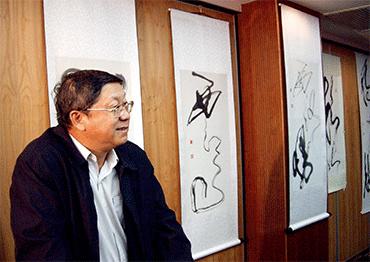According to Liu Youju, in some countries, incumbent and retired officials are prohibited from receiving art products. If the gifts cannot be refused, they should submit them as state assets.
“When a mayor of Florence, Italy received my works as a present, instead of keeping them as his own, he handed them over to his country,” Liu told NewsChina.
In auctions, it is standard practice internationally that all parties, including the creator or owner and the successful bidder, pay tax on the sale, and the process is strictly monitored so there is no corruption, Liu said.
He said it is imperative to regulate China’s chaotic art market by blocking dubious transactions that are a front for corruption. Efforts should not only be shared between cultural and tax administrations but also by artists, Liu added.
Over the past few years, corruption involving books, albums, pricey artworks, antiques, jade and even fixing art competitions have become increasingly hard to distinguish, Ren Kangting, member of the Standing Committee of the Discipline Inspection Commission of Guizhou Province, wrote in an article published on the CCDI website on September 21, 2023.
According to corruption expert Mao, US federal laws define bribery as anything of value or overestimated value given to any officials in order to influence their public duties. Whereas, in China, bribery in forms of antiques and artworks needs to be evaluated before the suspect can be charged.
So it is hard to decide on the seriousness of corruption when it can either be dependent on how much the officials pocketed or how the articles are valued in the current market, given artworks’ frequent price fluctuations, the CCDI newspaper reported in late 2022.
Liu Weiyuan, a lawyer from the Guangzhou branch of Beijing Dacheng Law Office, told NewsChina that for officials who are suspected of being bribed but without knowing what the object was worth, market value should be used in assessing the level of their crime. But for those who knew the value of what they were given, the transaction amounts should be used when judging them.
With the rise of bribery in the culture and art sectors, Mao advised the government to improve legal provisions, particularly those concerning power rent-seeking and benefit transfer. Retired officials should not receive honorary academic or cultural titles or awards, and care should be taken if they exhibit artworks or write books.
No matter how difficult, the law should be much more robust, especially for companies involved in money laundering and bribery, Guangdong’s biweekly Nanfang reported last year. “All violations should be filed and punished, so that investigations can be advanced to uproot clandestine corruption more easily.”

 Old Version
Old Version
